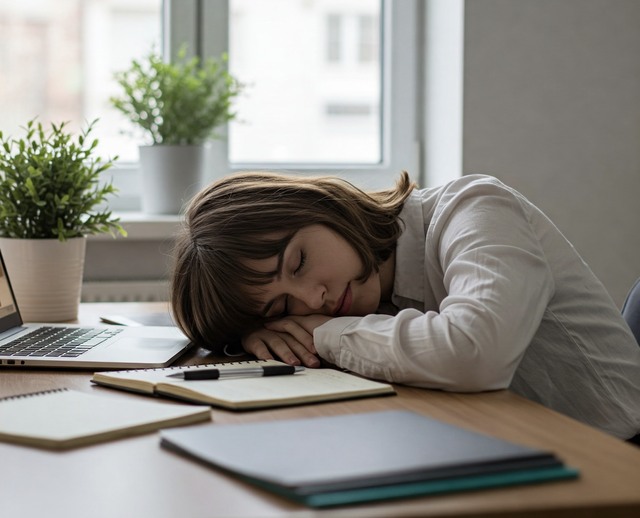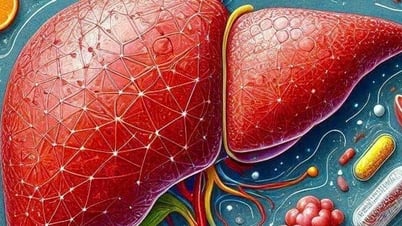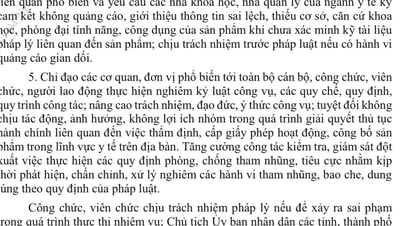Starting the day with health news , readers can also read more articles: Extremely good morning habits to help improve sleep for the elderly; Taking a nap the wrong way can do more harm than good ; Unexpected good news for football lovers...
Drinking coffee while fasting, is it good to lose weight?
Coffee can be used for weight loss, even for intermittent fasting, but it needs to be used properly so as not to have the opposite effect.
One popular intermittent fasting method is 16:8, which involves fasting for 16 hours a day and having an 8-hour eating window. A small study found that healthy overweight women who followed this diet for 8 weeks lost 3.2% of their body weight and improved their total cholesterol levels.

Drinking moderate amounts of unsweetened coffee may aid in weight loss
Photo: Nhu Quyen
According to a 2023 study, drinking moderate amounts of unsweetened coffee may aid in modest weight loss. Another study also found that intermittent fasting and coffee consumption may help reduce inflammation.
“Drinking black coffee is generally fine during fasting, as research shows it has little effect on fasting blood sugar or triglycerides — a type of fat in the blood — after a period of not eating or drinking,” says nutritionist Carla Hernandez, founder and director of nutrition consulting firm Wise Roots Nutrition (USA). “However, some people are sensitive to caffeine and may be affected. So it’s important to understand how your body reacts to coffee.” The next content of this article will be on the health page on April 5 .
Great morning habits to help improve sleep for the elderly
New research published in the scientific journal GeroScience has revealed a simple morning routine that can improve sleep for older adults.
According to the website of the University of California (USA) Medical Center UC Davis Health , blue light is part of the visible light spectrum - the light that the human eye can see.
Blue light tends to get criticized because it is artificially produced by most electronic screens, including cell phones, computers, tablets, and televisions.

A simple morning routine can improve sleep for older adults
Photo: AI
However, UC Davis points out that “sunlight is the biggest source of blue light.” That’s why the body’s circadian rhythm is so heavily influenced by blue light. Exposure to this light at night can signal the body that it’s daytime, disrupting the ability to sleep. But what’s unique is that exposure to blue light in the morning can help older adults sleep better.
In the new study, scientists from the University of Surrey (UK) analyzed health data of 36 people over the age of 60 who self-reported sleep problems. The study lasted for 11 weeks in the autumn and winter when natural sunlight in the UK is limited.
Participants were exposed to two types of indoor light: blue light and white light as a control - emitted from a light box used for 2 hours in the morning and 2 hours in the evening. Participants wore a sleep tracker and light sensor, and recorded a sleep diary.
The results found that longer exposure to blue light in the morning helped participants experience less sleep disruption . Conversely, exposure to blue light in the evening made it harder for participants to fall asleep and caused them to wake up more often. The next content of this article will be on the health page on April 5 .
Taking a nap the wrong way does more harm than good.
Napping can help you stay alert, improve your mood, boost your memory, and increase your productivity. However, if done incorrectly, the benefits can outweigh the harm.
A short nap at noon allows the brain to rest, helping you wake up easily with a feeling of refreshment. Especially for those who have interrupted sleep due to irregular schedules or have to do work that requires high concentration, a timely nap is enough to regain alertness, reduce the risk of making mistakes, causing accidents .
However, the newspaper also cited studies that show napping for too long can make you wake up feeling worse than before. This is because "sleep inertia" causes drowsiness and disorientation. Napping too late can even make it difficult to fall asleep at night because it reduces "sleep pressure accumulation" - the body's natural drive to sleep.

Taking a nap the wrong way does more harm than good.
Photo: AI
On the other hand, when napping for longer than 30 minutes, the brain enters deep sleep, making it much more difficult to wake up. Studies show that waking up from deep sleep can leave people feeling groggy for up to an hour. This can have serious consequences if they then attempt to perform safety-critical tasks, make decisions, or operate machinery.
Dr Talar Moukhtarian, a mental health expert at Warwick Medical School, University of Warwick (UK), wrote in the Independent that people with chronic insomnia are often advised to avoid napping altogether because it can reduce their need for sleep at night. Start your day with health news to see more of this article!
Source: https://thanhnien.vn/ngay-moi-voi-tin-tuc-suc-khoe-dang-nhin-an-gian-doan-co-nen-uong-ca-phe-185250404235458765.htm


![[Photo] Readers line up to visit the photo exhibition and receive a special publication commemorating the 135th birthday of President Ho Chi Minh at Nhan Dan Newspaper](https://vphoto.vietnam.vn/thumb/1200x675/vietnam/resource/IMAGE/2025/5/17/85b3197fc6bd43e6a9ee4db15101005b)

![[Photo] Prime Minister Pham Minh Chinh chairs meeting on science and technology development](https://vphoto.vietnam.vn/thumb/1200x675/vietnam/resource/IMAGE/2025/5/17/ae80dd74c384439789b12013c738a045)

![[Photo] More than 17,000 candidates participate in the 2025 SPT Competency Assessment Test of Hanoi National University of Education](https://vphoto.vietnam.vn/thumb/1200x675/vietnam/resource/IMAGE/2025/5/17/e538d9a1636c407cbb211b314e6303fd)



















![[Photo] Nearly 3,000 students moved by stories about soldiers](https://vphoto.vietnam.vn/thumb/1200x675/vietnam/resource/IMAGE/2025/5/17/21da57c8241e42438b423eaa37215e0e)







































































Comment (0)